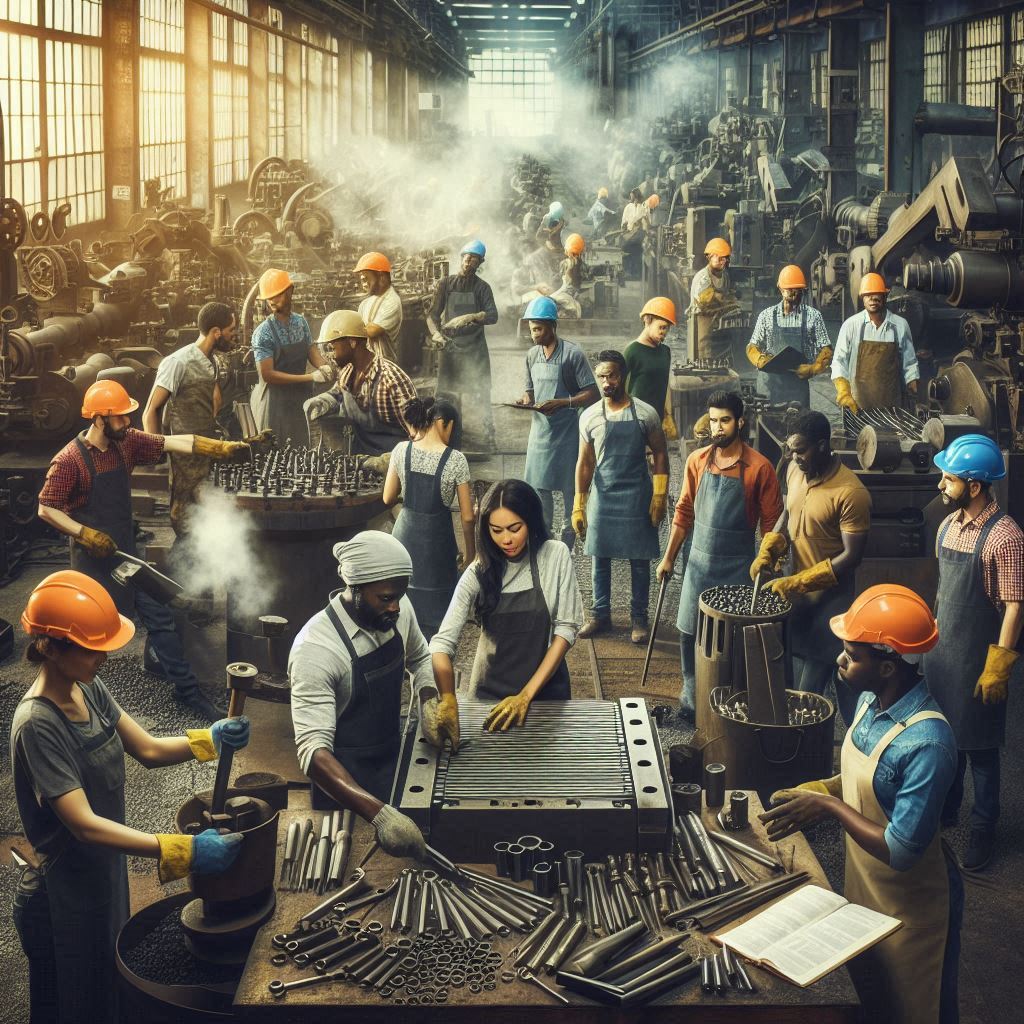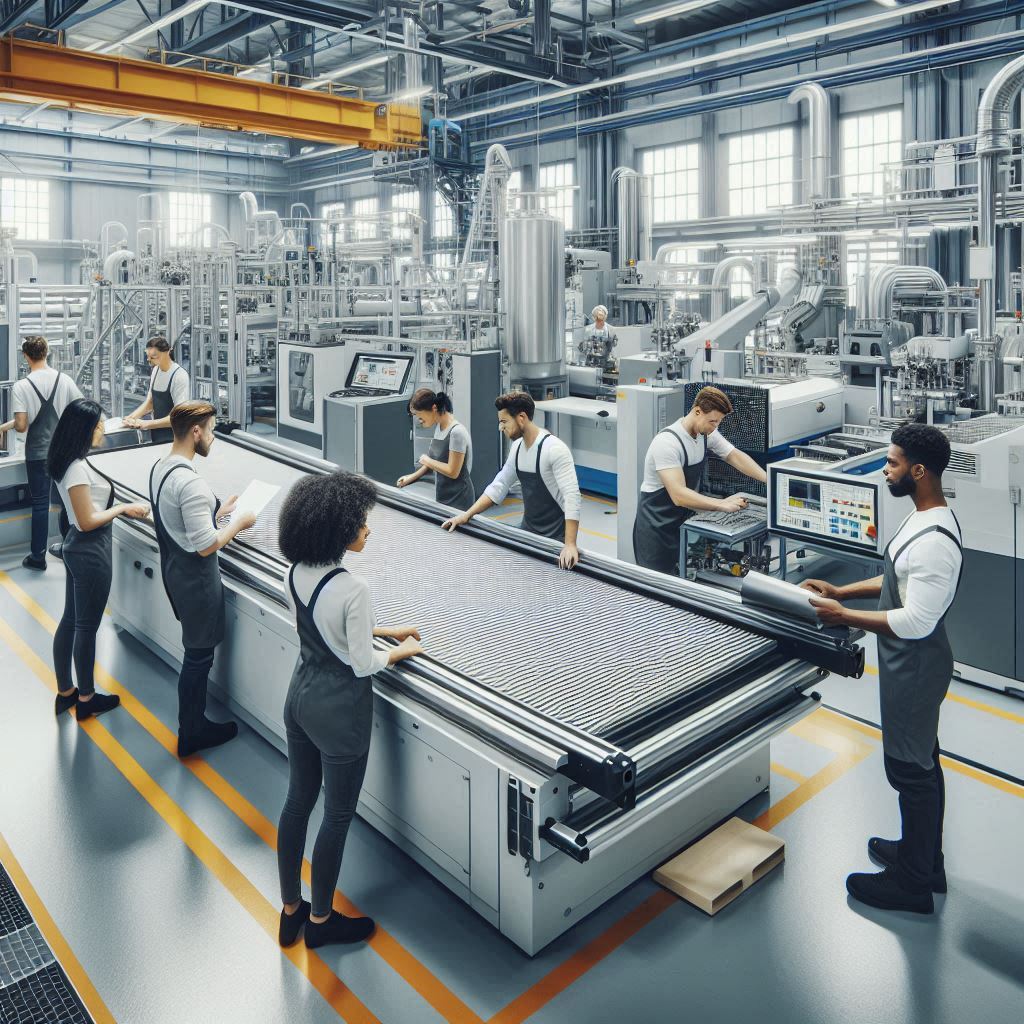Forging Company India: Driving Global Manufacturing

India has emerged as a key player in the global forging
industry, offering a competitive edge in terms of quality, scalability, and
affordability. As global industries continue to demand high-strength,
precision-engineered metal components, a forging company in India stands ready
to deliver customized solutions that meet international standards. From
automotive and aerospace to oil & gas and construction, Indian forging
companies are becoming preferred manufacturing partners for OEMs and Tier 1
suppliers worldwide.
Why Choose a Forging Company India?
A forging company India
offers multiple strategic advantages that position it as a global sourcing
destination for forged components. Indian firms deliver cost-efficient
production by leveraging affordable labor, energy, and infrastructure, without
compromising on quality. The availability of a technically skilled
workforce—well-versed in international manufacturing norms—ensures consistent
output that meets demanding specifications. With strong export capabilities and
supply chain logistics, these companies are well-prepared to serve global OEMs
and Tier 1 suppliers. Furthermore, adherence to internationally recognized
certifications such as ISO 9001, IATF 16949, AS9100, PED, and CE ensures
quality, reliability, and trust among international buyers.
Forging Techniques Used by Indian Manufacturers
The capabilities of a forging company India span a
wide spectrum of forging technologies, enabling them to serve diverse
industries with components of varying complexity, size, and material
composition. Closed die forging is extensively used for high-volume,
high-precision parts, offering superior surface finish and mechanical strength,
ideal for automotive and aerospace sectors. Open die forging, on the
other hand, is suited for large components like shafts and blocks, often
required in heavy machinery and marine applications. For industries such as
energy and oil & gas, ring rolling technology allows for the
production of seamless rolled rings with outstanding structural integrity.
Additionally, Indian forging companies are proficient in hot, warm, and cold
forging techniques, each chosen based on material type and end-use
application. This comprehensive technical expertise allows Indian forging firms
to deliver tailored solutions that meet global performance standards.
End-to-End Services Offered
Top forging companies in India go beyond simply shaping raw
metal—they provide end-to-end manufacturing solutions that enhance
product quality, consistency, and performance. These firms offer design
support using CAD modeling and simulation software to optimize part
geometry and reduce material waste or defects. Precision die making
using CNC equipment ensures repeatable, high-accuracy production. To enhance
durability and mechanical properties, components undergo heat treatment
processes like carburizing, quenching, and normalizing. For applications
requiring fine tolerances, CNC machining is performed after forging.
Additionally, surface treatments such as plating, painting, and coating
are offered to boost corrosion resistance and aesthetics. Every stage is backed
by robust quality assurance, including non-destructive testing (NDT),
coordinate measuring machines (CMM), and metallurgical analysis—ensuring that
each forged component meets international standards and client specifications.
Applications Across Industries
A reputed forging company India serves a broad range
of industries by supplying both custom and standard forged components tailored
to specific performance requirements. In the automotive sector, Indian
forging firms are trusted Tier 1 and Tier 2 suppliers to major vehicle
manufacturers, delivering critical parts such as crankshafts, connecting rods,
gears, axles, and wheel hubs. The aerospace industry relies on Indian
forgings for lightweight yet durable components like landing gear, engine
parts, actuator housings, and structural brackets. In the oil and gas sector,
forged parts such as valve bodies, drill collars, pipeline connectors, and
flanges must withstand extreme pressures and corrosive environments. Construction
and mining equipment require high-strength forgings like drive shafts,
pins, bushings, and excavator hooks for reliable heavy-duty operation. For the agriculture
sector, forging companies supply robust components including rotavator
blades, spindles, gears, and tractor axle beams—ensuring long-lasting
performance in demanding field conditions.
Strategic Forging Hubs in India
India has several industrial clusters specializing in
forging:
- Pune,
Maharashtra: Known for auto and aerospace forgings.
- Rajkot,
Gujarat: Agricultural and general engineering parts.
- Ludhiana,
Punjab: Medium and small-scale forgings.
- Chennai,
Tamil Nadu: Marine and oil & gas forgings.
- Faridabad
& Gurgaon, Haryana: Focus on automotive and heavy equipment
components.
Technological Advancements in the Indian Forging Sector
To remain globally competitive, forging companies in
India are increasingly embracing advanced manufacturing technologies and
sustainable practices. Automation, through robotic arms and automated
press lines, enhances consistency, reduces cycle times, and boosts
productivity. Digital simulation tools, such as 3D modeling and finite
element analysis (FEA), are now widely used to optimize die design and
eliminate potential defects before production begins. By integrating IoT-based
smart sensors, companies can monitor equipment performance in real time and
implement predictive maintenance strategies, minimizing downtime. Additionally,
a strong focus on green manufacturing—including the use of
energy-efficient furnaces and environmentally friendly lubricants—is helping
Indian forging firms reduce emissions and align with global sustainability
goals.
Workflow of a Typical Forging Project
A typical order processed by a forging company in India
follows a well-structured, quality-driven workflow to ensure each part meets
exact client specifications. The process begins with client consultation,
where the application, material selection, production volumes, and design
requirements are discussed in detail. This is followed by CAD modeling and
simulation to optimize the part’s geometry for strength, flow, and
manufacturability. Once finalized, dies are manufactured using CNC
precision tools. The selected forging operation—whether hot or cold—is
then carried out to shape the component. Post-forging, trimming removes
excess material, and heat treatment is applied to enhance mechanical
properties. If required, machining is done to meet final dimensional
tolerances. The process concludes with rigorous inspection and secure
packaging, ensuring the forged parts are quality-verified and ready for
global dispatch.
How to Choose the Right Forging Company in India
When selecting a forging partner, it’s important to evaluate
several critical factors to ensure long-term success. Look for a forging
company in India with proven experience in your industry, as they
will better understand specific performance requirements and challenges. Advanced
equipment such as CNC-controlled forging presses, in-house die shops, and
heat treatment facilities indicate strong technical capabilities. The ability
to offer customization support, from design consultation to tailored
material grades, adds flexibility. Make sure the company holds global
certifications like ISO, IATF, or AS9100, ensuring quality and regulatory
compliance. Efficient delivery timelines, export readiness, and reliable
communication channels are also key. A trusted Indian forging partner
doesn’t just supply parts—they collaborate as an extension of your engineering
team, driving down costs, enhancing quality, and enabling scalable growth.
Future Outlook
The future of the Indian forging industry is full of
potential, fueled by emerging technologies and evolving global needs. As the
world shifts toward electrification, EV component forging is creating
new opportunities—such as battery mounts, lightweight structural parts, and
motor housings—all requiring precision and strength. Sustainability is another
key focus, with Indian forging companies investing in energy-efficient
operations, green furnaces, and zero-waste manufacturing
practices. Additionally, global collaborations through joint
ventures and technical partnerships are helping Indian firms access advanced
technologies and new markets. Backed by government initiatives like Make in
India and PLI, along with a proven export track record, forging companies in
India are well-positioned to become dominant players in the international
supply chain.
Conclusion
A forging company India delivers more than just metal
parts—it delivers strength, reliability, and long-term performance across
critical applications. Whether you're in the automotive, aerospace, or energy
sector, Indian forging manufacturers offer unmatched value through world-class
quality, engineering support, and global delivery. As the demand for precision
components rises, Indian forging companies will remain essential partners in
building the world’s strongest machines.
